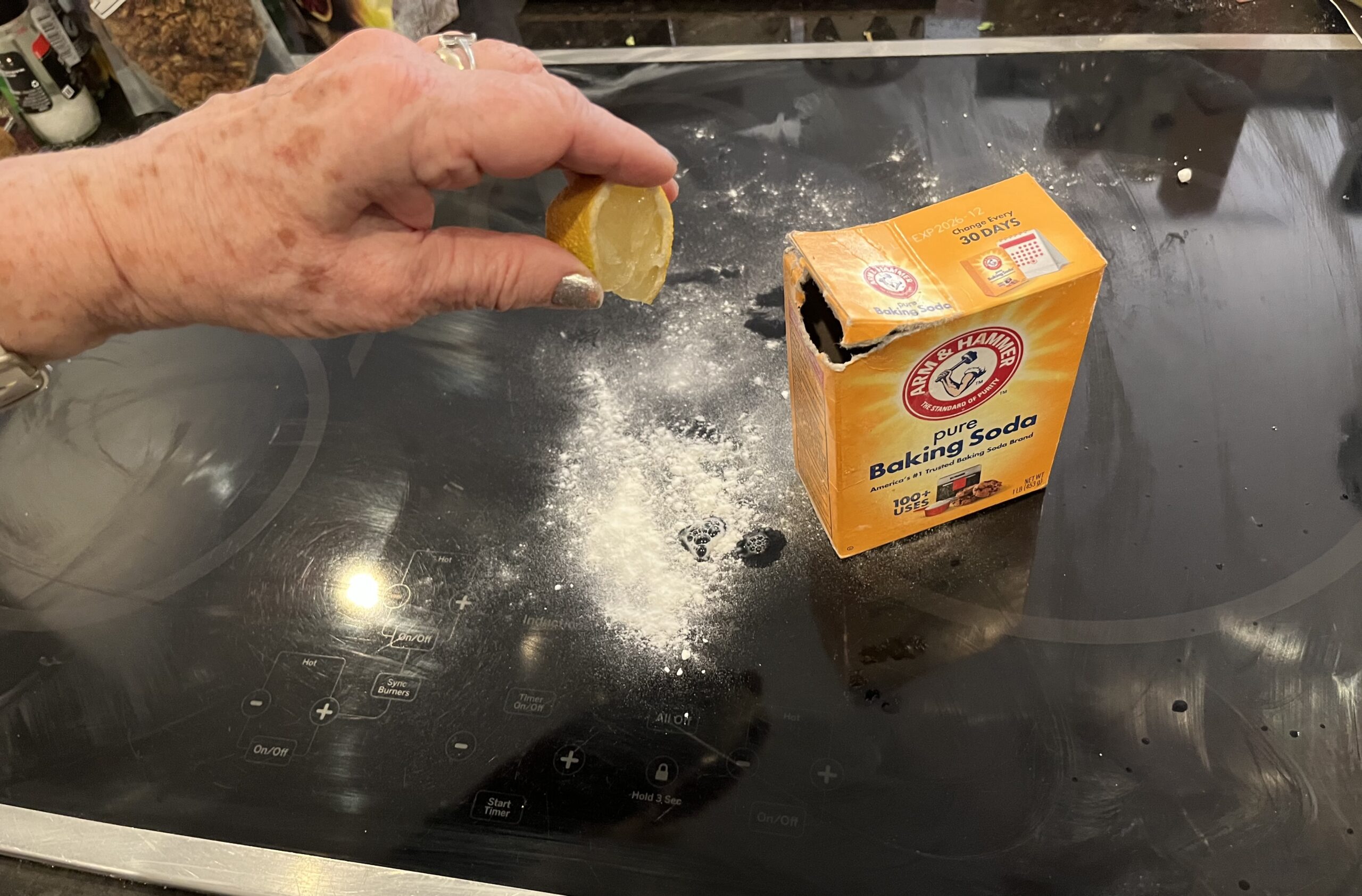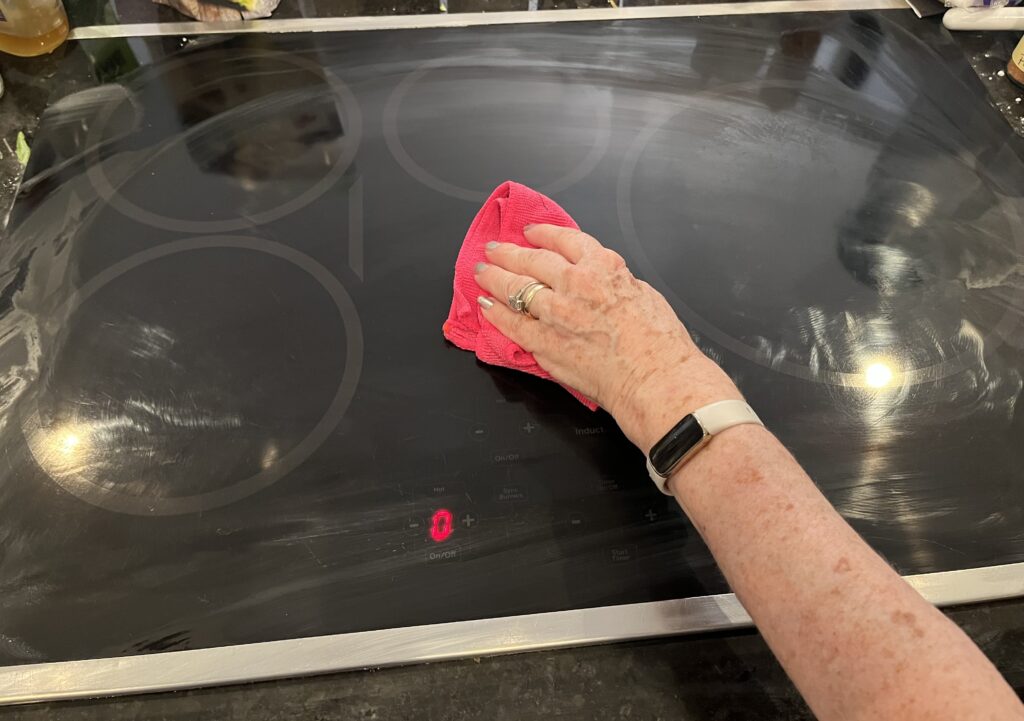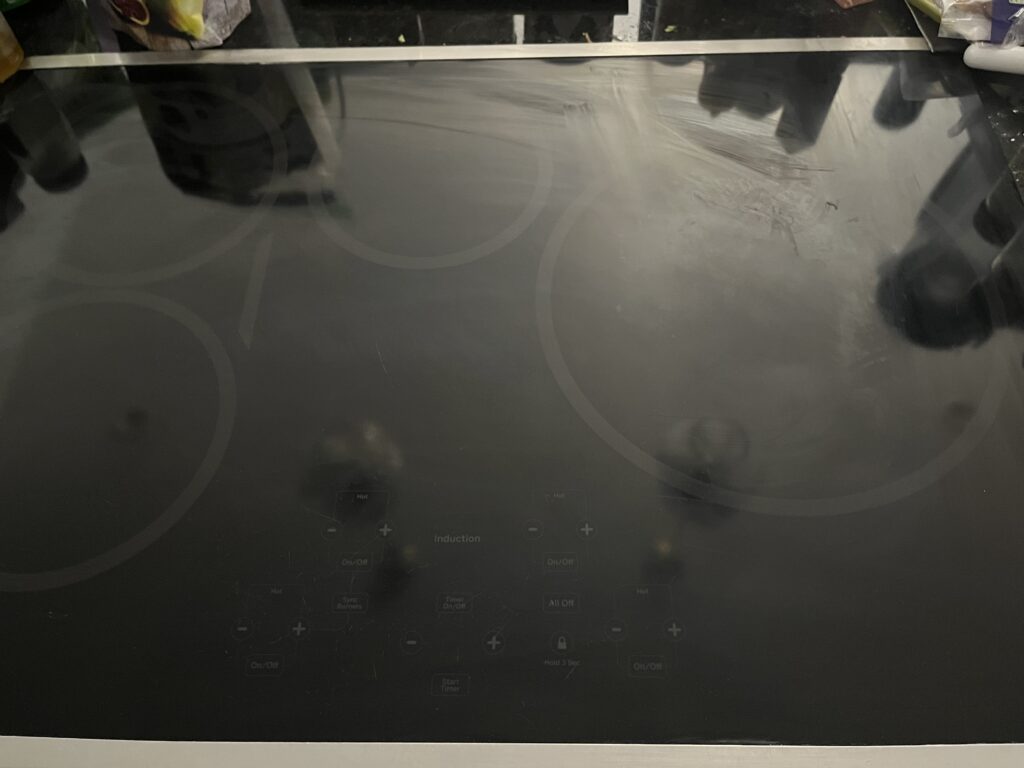Consumer Diary: Stovetop Cleaning, Junk Fees

Audio By Carbonatix

To clean an induction stovetop pour some baking soda on the surface and squeeze some lemon juice on it.. Photo credit: Harlan Levy
Consumer columnist and West Hartford resident Harlan Levy has more than 20 years of experience writing stories about everyday experiences that anyone could encounter.

Harlan Levy. Courtesy photo
By Harlan Levy
Hey, readers who own induction stovetops: Here’s a cleaning tip, courtesy of my wife.
But first I have to say that as sleek and modern-looking as these stovetops are, they’re not as good as a gas-fired stovetop. They won’t turn on if there are too many items sitting on it, and they often just turn off mid-cooking, a real annoying pain in the ass! And you have to buy specific, induction-compatible cookware. Just not worth it. Had to say that.
Now the hack: First you pour some baking soda on part of the surface and squeeze some lemon juice onto it. Then take a microfiber cloth – not a regular dishcloth – and wipe off the dirt and grime. Repeat as needed. Simple, right?

After the baking soda and lemon is on the surface with a microfiber cloth.. Photo credit: Harlan Levy

The induction stovetop looks almost brand new after cleaning.. Photo credit: Harlan Levy
Junk fees
Sick of the ubiquitous, annoying, and unavoidable “resort fees” and “facilities charges” which hotels and vacation rentals routinely add to your bill and the “convenience“ and “service” fees increasing your live-event shows’ and sporting event costs?
The purveyors add these fees – which don’t give buyers anything extra – because they avoid giving online hotel or ticket booking sites (like booking.com or Expedia) a percentage, since booking sites only take a percentage of advertised rates. When the hotel or booking site collects the resort, facilities, or service fees at check-in or ticket purchase separately from the advertised charges purchased online, the hotel or ticket company collects 100% of these spurious add-ons.
Well, readers, the Federal Trade Commission has just done something about those fees, announcing a final Junk Fees Rule to prohibit widespread, deceptive bait-and-switch pricing and other tactics used to hide total prices and bury junk fees by the live-event ticketing and short-term lodging industries.
“People deserve to know up-front what they’re being asked to pay – without worrying that they’ll later be saddled with mysterious fees that they haven’t budgeted for and can’t avoid,” said FTC Chair Lina Khan. “The FTC’s rule will put an end to junk fees around live event tickets, hotels, and vacation rentals, saving Americans billions of dollars and millions of hours in wasted time.”
Hear, hear, Lina Khan!
The FTC estimates that the Junk Fees Rule will save consumers up to 53 million hours per year of wasted time spent searching for the total price for live-event tickets and short-term lodging. This time savings is equivalent to more than $11 billion over the next decade, the FTC said.
The Junk Fees Rule requires that businesses clearly and conspicuously disclose up front the true total price inclusive of all mandatory fees — also more prominently than most other pricing information. This means that the most prominent price in an ad needs to be the all-in total price.
Finally, the rule requires businesses that exclude allowable fees up front to clearly and conspicuously disclose the nature, purpose, identity, and amount of those fees before consumers consent to pay. However, the rule does not prohibit any type or amount of fee, nor does it prohibit any specific pricing strategies. Disclosure is the deal.
Enforcement: Civil court action by the FTC, including injunctions and settlements. Penalties can be up to $51,000 per day per violation, with the total based on the number of consumers affected or the amount of harm the violators caused.
The FTC launched this rulemaking in 2022 by requesting public input, receiving more than 12,000 comments on hidden and misleading fees and more than 60,000 additional comments when it considered developing the just announced final rule.
The problem: We still have to pay these useless fees.
Now you know.
NOTE: If you have a consumer problem, contact me at [email protected] (“Consumer” in subject line), and, with the power of the press, maybe I can help.
Like what you see here? Click here to subscribe to We-Ha’s newsletter so you’ll always be in the know about what’s happening in West Hartford! Click the blue button below to become a supporter of We-Ha.com and our efforts to continue producing quality journalism.



